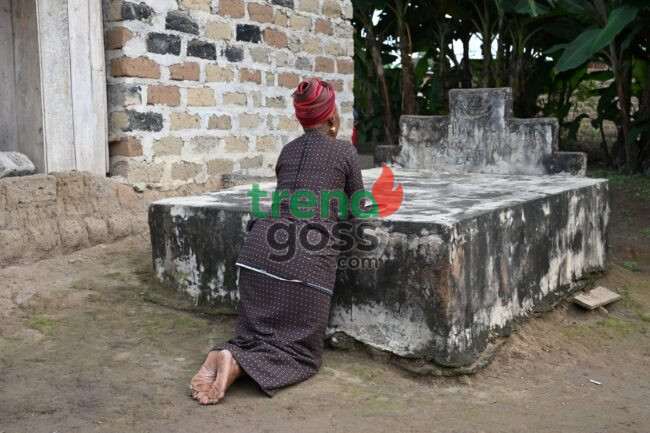Juliette Bie was at her sick mother’s bedside when two men barged through the door of her home in western Ivory Coast and raped her during tumultuous political unrest in 2011. Calm has returned to the West African country in the years since that post-election crisis, which killed around 3,000 people.
However, hundreds of survivors of sexual violence, many fearful of the stigma that victimhood carries, have banded together to rebuild their shattered lives. Bie, whose mother witnessed the crime and died shortly after, never pressed charges against her rapists. “We hid ourselves because we were ashamed,” she said.
Today, she uplifts fellow survivors through a support group she created in the town of Man. “It’s a way of healing. Psychologically, we’re freeing ourselves,” said Bie.
About 100 kilometers away in Duekoue, 35-year-old Mariam Bakayoko has founded a “space where, as women, we can express ourselves and share our experiences.” For over a decade, the group’s members have met weekly to share tea and stories. “There is a trust that has been created and a bond too,” she noted.
Western Ivory Coast experienced nearly a decade of unrest from 2002 to 2011 as rebels loyal to current President Alassane Ouattara led an uprising against his predecessor, Laurent Gbagbo. The number of women who, like Bie and Bakayoko, were sexually assaulted during this conflict is likely underestimated.
The Platform of Organisations for the Reparation of Victims of Ivorian Crises (POREV-CI) reports that it has assisted over 950 women who survived sexual violence during that period. Local official Serge Loua stated, “there are doubtless more,” especially those unable or unwilling to speak out.
With a presidential election approaching in October, where Ouattara seeks a fourth term, the state organized a forum in Guiglo to celebrate the “peace” that has returned to the country’s west. Many survivors view these celebrations as premature.
Anne-Marie, a survivor whose name has been changed for her protection, was stopped by gunmen while fleeing the rebels in 2002. She was raped multiple times during her ordeal. Many survivors still bear the scars of their abuse today. Monique, now 50, lost her baby after being raped while pregnant in 2002 and has been unable to conceive since. Agnes, 52, contracted HIV after her assault in Man that same year.
“We cannot talk about peace because we haven’t had the reparations we are owed,” Agnes stated.
All the women interviewed reported receiving no financial or psychological support from the Ivorian state, despite having reported their situations after the crisis. Belmonde Dogo, the minister for national cohesion, solidarity, and the fight against poverty, claimed that all rape victims who signed up for aid “received assistance from the government.”
Justine Kpan, a mental health counselor for POREV-CI, emphasized that the women need revenue-generating activities to help rebuild their lives, as many lost their husbands during the unrest and face societal scorn. “They feel forgotten,” Kpan said.
#IvoryCoast #RapeSurvivors #Healing #WomenEmpowerment #SexualViolence #SupportGroups #PostElectionCrisis #MentalHealth






